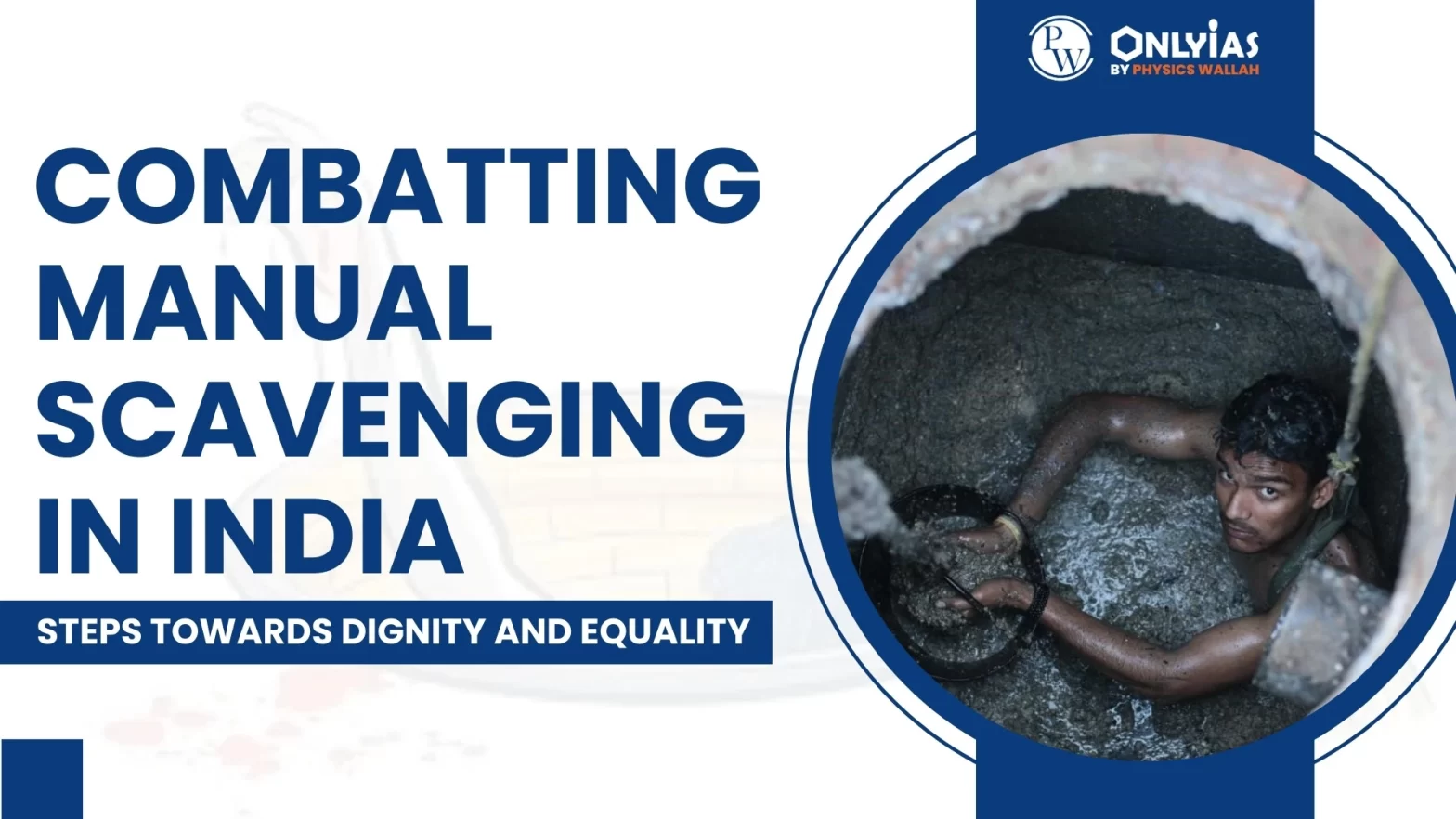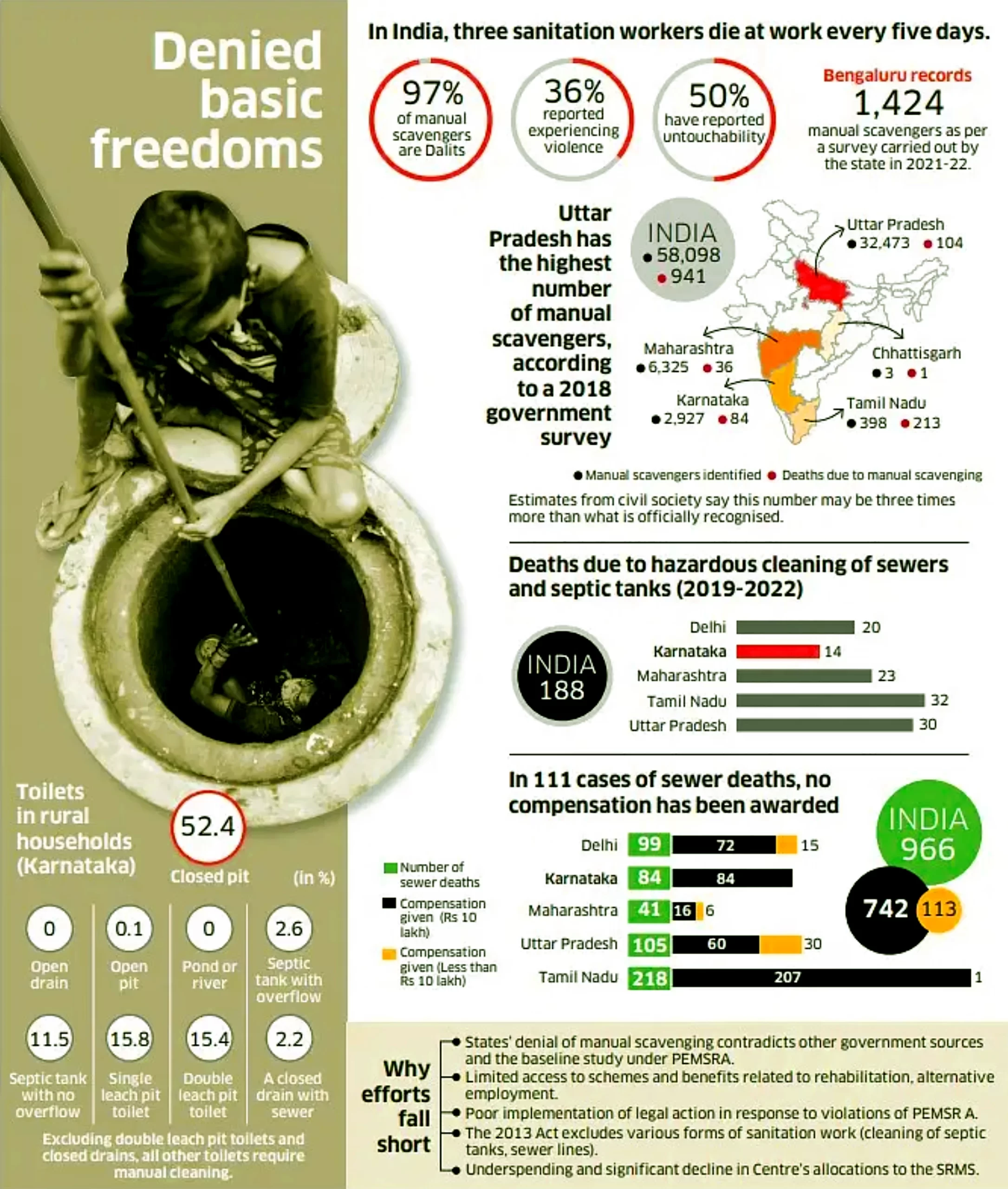
National Commission for Safai Karamchari (NCSK):
|
|---|

| Provisions on Manual Scavenging in India:
Constitutional Provisions: Inspired by the Universal Declaration of Human Rights, 1948, Part III of the Constitution embodied strong human rights protections in Part III to prevent social ostracism emanating from caste practices.
National Commission for scheduled caste (NCSC): It is mandated to safeguard the interests of scheduled castes in India. Article 338 (5) of India’s constitution outlines certain NCSC duties. Legal Provisions:
|
|---|
To get PDF version, Please click on "Print PDF" button.

<div class="new-fform">
</div>